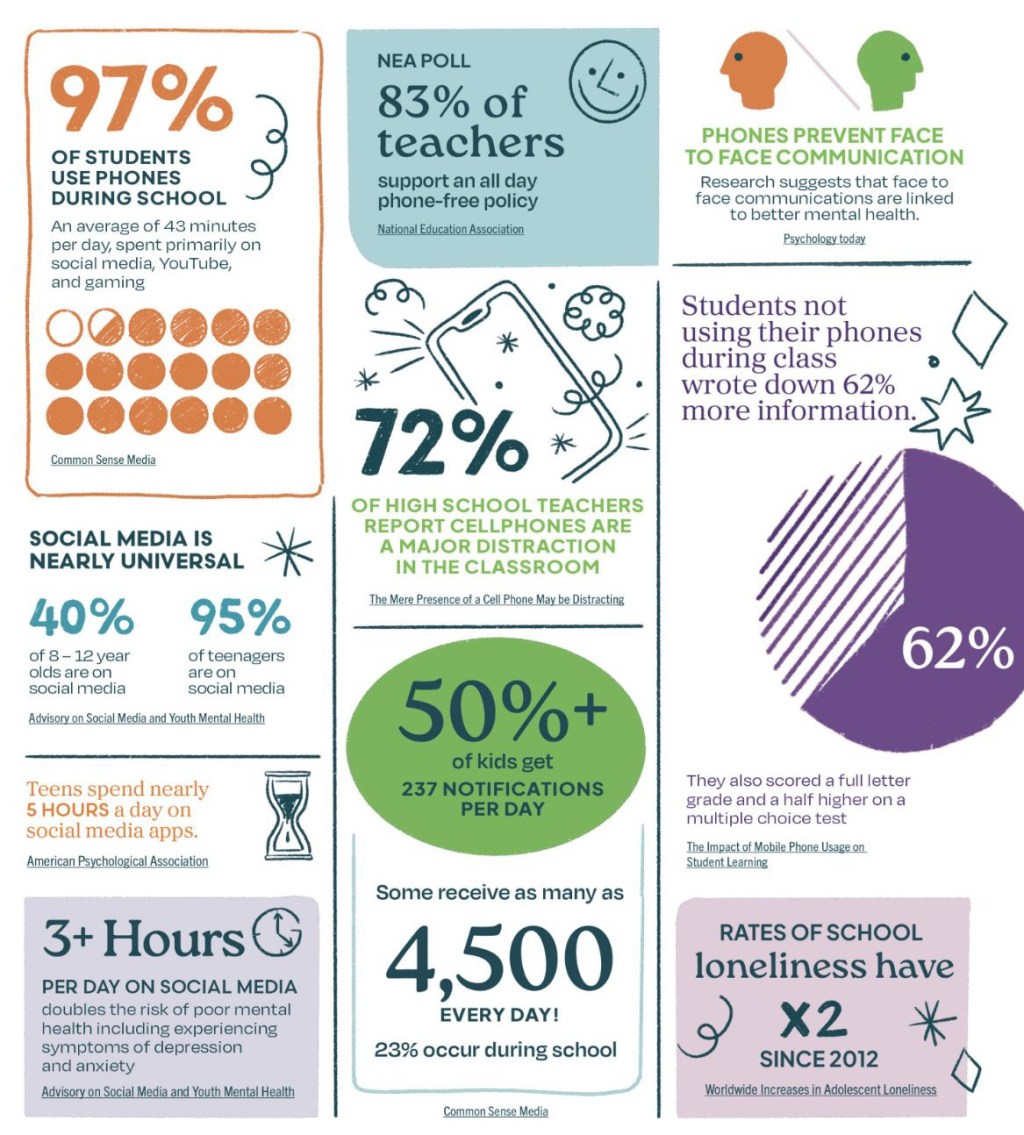PARIS — A new policy on cell phones and other devices was approved Monday by Maine School Administrative District 17 directors, making the school buildings an environment “free of personal electronic devices,” effective with the start of the new academic year on Aug. 27.
As written, enforcement of Policy JICJ Student Use of Cell Phones and other Electronic Devices defers to SAD 17’s superintendent and administrators to determine. During Monday’s meeting, Oxford Hills Comprehensive High School Principal Paul Bickford and Oxford Hills Middle School Principal Samantha Armstrong presented the district’s new procedures to school board directors.

Oxford Hills school district’s new procedures for student use of cell phones and other electronic devices. (Courtesy photo)
Students may keep possession of their device, as long as they are turned off and put away.
They may not use their devices during school hours starting when the first bell rings, until the last bell at the end of the day.
Superintendent Heather Manchester noted that a similar version of the policy was in effect through the 2024-25 school year — students had to shut their phones off during class but could use them during lunch or between classes.
Students who violate the new policy will have to turn their device in at the main office for the remainder of the school day. After a third violation, a parent must pick up the device.
Bickford shared an anecdote about being on lunch duty on a day when he counted 43 students sitting at cafeteria tables. “In one section of the cafeteria, 42 of those 43 were on their phones.”
The administrative group tasked with creating procedures to enforce the policy reviewed a number of resources, including a Lenore Skenazy article published by The Atlantic, ‘What kids told us about how to get them off their phones’; the book ‘The Anxious Generation’ by by social psychologist Jonathan Haidt; Common Sense Media; and Psychology Today, among others.

Monday night, the Oxford Hills board of directors heard high school and middle school principals Paul Bickford and Samantha Armstrong present statistics concerning the effects of smart devices and social media on kids. (Courtesy photo)
“What we’ve found is that social media, and devices, are designed to be addictive,” Armstrong said. “One study shows that 72% of high school students report cell phones are a major distraction in class. And these distractions correlate to lower academic performance.”
To reach their children about an emergency, families should call their school’s main office.
Students will continue to have email access with their school-issued devices to learn about game, event and practice schedule announcements. They will be able to place phone calls from the school office.
If students are ill, they will be instructed to go to the Health Office for evaluation and have their parents contacted.
Considerations will be put in place to allow students who need to access health data through their phones, such as for glucose monitoring. School nurses will be involved with and monitor students with 504 plans.
“The cell phone policy is similar to what we had in place last year,” Armstrong said. “We saw no issues” adjusting to it.
“It will be an extension of what we’ve already practiced,” added Manchester.

We invite you to add your comments. We encourage a thoughtful exchange of ideas and information on this website. By joining the conversation, you are agreeing to our commenting policy and terms of use. More information is found on our FAQs. You can modify your screen name here.
Comments are managed by our staff during regular business hours Monday through Friday as well as limited hours on Saturday and Sunday. Comments held for moderation outside of those hours may take longer to approve.
Join the Conversation
Please sign into your Sun Journal account to participate in conversations below. If you do not have an account, you can register or subscribe. Questions? Please see our FAQs.